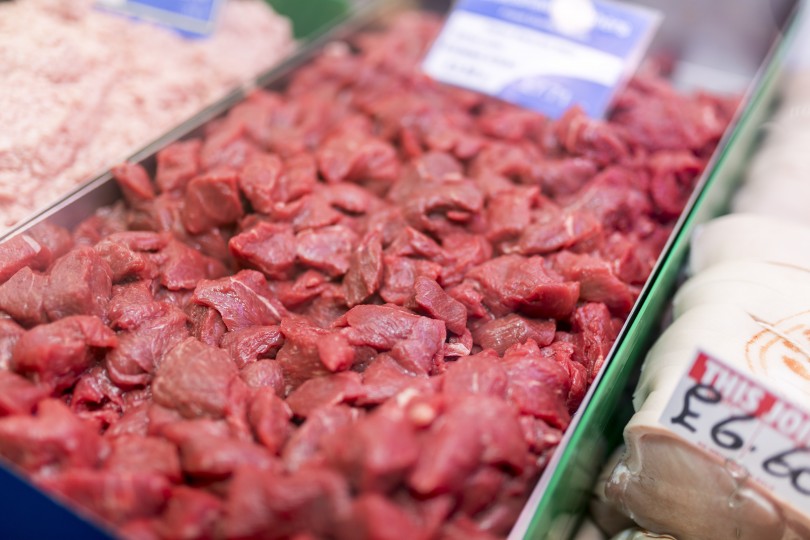
Taxing meat could be an important lever for aligning Western diets with environmental goals and can be designed such that low-income households and farmers are compensated.
A forthcoming paper in the Review of Environmental Economics and Policy explores an environmental tax on meat in countries like the UK, US, and Australia to increase its price by 20-60%, depending on the meat type. This would reduce consumption of the most damaging foods and could provide revenue for sustainable farming practices and to support low-income families. The authors stress that taxing meat directly is a simple tool if more targeted and efficient policy options, such as extending carbon pricing to the livestock sector, are not available.
“Livestock farming is a huge contributor to greenhouse gas emissions, soil and water pollution, and precious forests are being cleared for pastures and food crops. Evidence suggests the environmental impacts are so large that the world can’t meet climate goals and keep vital ecosystems intact without reducing the consumption of meat – at least in Western high-income countries,” said Professor Linus Mattauch from the Institute for New Economic Thinking at the Oxford Martin School and the Technical University of Berlin. “While that does not mean that people will have to entirely cut out all meat, future diets would have to incorporate more plant-based proteins, perhaps as well as novel meat replacements. Alongside other measures, consumption taxes on meat could be an important lever to incentivize that transition.”
The paper suggests that the average retail price for meat in high-income countries would need to increase by 35-56% for beef, 25% for poultry, and 19% for lamb and pork to reflect the environmental impacts of their production. However, this is only a first calculation and does not consider the damage caused by biodiversity loss, the negative health impacts of meat consumption for humans, and animal welfare.
The paper did not look at these potential taxes and their anticipated positive environmental impact in isolation, it also analysed them in the context of the wider socioeconomic concerns around carbon taxes on consumer goods. It sets out proposed measures to build public support and to protect domestic meat producers and those on low incomes from negative economic impacts.
A key advantage of meat taxes, according to researchers, is their capacity to generate revenues.
"Building societal support for environmental tax reforms has seen success in the past when revenues are used specifically on compensating those most affected by it," says Professor Mattauch. “In the case of meat taxes, that is farmers and low-income households. We suggest that part of the revenue could be allocated to livestock farmers to help them develop alternative income streams or implement higher animal welfare standards as well as creating policies which support those on low incomes.”
“Rising income inequality and the fact that some people struggle to put food on the table is an urgent problem, but it wasn’t the one we were looking to solve here. However, there are ways to ensure that meat taxes do not put additional financial pressure on those with low income. That is why we suggest that meat tax revenues should be redistributed to support low-income households or subsidise fruit and vegetables,” said Franziska Funke, lead author and researcher at the Technical University of Berlin and the Potsdam-Institute for Climate Impact Research
“High-income households already buy more, and more expensive, meat so they would contribute more to the tax revenues from the outset. Our data shows that with a simple measure, like redistributing the revenues from meat taxes evenly across the population, most people on low incomes would have more money than before the tax reform.”
The paper further stresses that a consumption tax would provide a more even playing field for domestic meat producers.
“A big worry with meat taxes has been that they could put livestock farmers out of business," adds Funke. “However, consumption taxes on meat could be better than other forms of regulation. They target imported meat equally to domestically produced meat. That prevents local producers from being undercut by products from countries with lower environmental regulations and insulates domestic farmers from competitive disadvantages abroad.”
The paper “Is Meat Too Cheap? Towards Optimal Meat Taxation” is due to be published in the Review of Environmental Economics and Policy later this year and is currently available to download as a working paper from the Institute for New Economic Thinking at the Oxford Martin School.